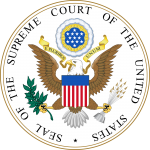 In a historic bipartisan moment, the U.S. House of Representatives passed a nearly 300-page bill that is intended to “repeal the Medicare sustainable growth rate [“SGR”] and strengthen Medicare access by improving physician payments and making other improvements.” The legislation, titled the Medicare Access and CHIP Reauthorization Act of 2015, which is referred to as the Medicare “doc fix”, is the result of ongoing bipartisan efforts to resolve an unpopular physician reimbursement system that if not overridden each year would cut Medicare doctor’s pay by a notable percentage. The annual reimbursement cut would occur as required under the federal Balanced Budget Act of 1997 (the “BBA”), if not for the annual fixes set into motion by Congress. In a March 25, 2015 letter from the Congressional Budget Office (“CBO”) to House Speaker Boehner, the CBO explained that the BBA established the SGR formula “to ensure that real—that is, adjusted for inflation—spending per [Medicare] beneficiary for physicians’ services would grow on average at a rate of increase in gross domestic protect per capita minus the expected rate of increase in productivity for the economy as a whole.”
In a historic bipartisan moment, the U.S. House of Representatives passed a nearly 300-page bill that is intended to “repeal the Medicare sustainable growth rate [“SGR”] and strengthen Medicare access by improving physician payments and making other improvements.” The legislation, titled the Medicare Access and CHIP Reauthorization Act of 2015, which is referred to as the Medicare “doc fix”, is the result of ongoing bipartisan efforts to resolve an unpopular physician reimbursement system that if not overridden each year would cut Medicare doctor’s pay by a notable percentage. The annual reimbursement cut would occur as required under the federal Balanced Budget Act of 1997 (the “BBA”), if not for the annual fixes set into motion by Congress. In a March 25, 2015 letter from the Congressional Budget Office (“CBO”) to House Speaker Boehner, the CBO explained that the BBA established the SGR formula “to ensure that real—that is, adjusted for inflation—spending per [Medicare] beneficiary for physicians’ services would grow on average at a rate of increase in gross domestic protect per capita minus the expected rate of increase in productivity for the economy as a whole.”
According to news outlets and press conferences, President Obama is ready to sign the bill once the Senate passes it. In the CBO’s letter to House Speaker Boehner, it estimated that this bill will increase:
- The federal budget deficits by $141 billion;
- Direct spending by approximately $145 billon; and
- Revenues by approximately $4 billion.
Under the Bill, Medicare’s payment rates for services on the physician fee schedule would increase by 0.5 percent a year for services furnished through 2019. From 2019 through 2025 payments will remain the same but Medicare doctors will be eligible for merit-based bonus payments consistent with Medicare initiatives such as care models that shift away from fee for services.
Many expected the Bill to pass the Senate on Friday, March 27th but the Bill was not put up for a vote and Senate Minority Leader Harry Reid and Majority Leader Mitch McConnell said the bill will not get a vote until mid-April when the Senate returns from its recess. CMS has provided notice that they will be able to hold payment for 14 calendar days to avoid a rate cut.
For further information contact Cozen O’Connor’s health care team. We will continue to monitor and provide updates.

 As hospitals look to forge alignments with medical staff physicians and many “independent” physicians consider whether they want to become employees of a hospital or health system or remain independent operators of their own practice, a practice lease arrangement may provide a very attractive alternative. Under the typical lease arrangement the institution leases the practice, including the practices operations, premises, physicians and other professional staff.
As hospitals look to forge alignments with medical staff physicians and many “independent” physicians consider whether they want to become employees of a hospital or health system or remain independent operators of their own practice, a practice lease arrangement may provide a very attractive alternative. Under the typical lease arrangement the institution leases the practice, including the practices operations, premises, physicians and other professional staff. Mark H. Gallant
Mark H. Gallant
 Health care providers, insurers and all who handle information on their behalf were put on notice last week that cybersecurity must be a high priority for their organizations. Anthem, Inc. (“Anthem”), the nation’s second largest health insurer, revealed on February 4, 2015 that its information technology (“IT”) system was victimized by a “very sophisticated” cyberattack that exposed the birthdates, social security numbers, street and email addresses and employee data (including income information) of approximately 80 million customers and employees. Anthem noted that the hackers apparently did not get any health information or credit card numbers in the attack, but that the hack did yield medical information numbers. Anthem discovered the breach on its own on January 29th and contacted the FBI, which has started an investigation into the matter.
Health care providers, insurers and all who handle information on their behalf were put on notice last week that cybersecurity must be a high priority for their organizations. Anthem, Inc. (“Anthem”), the nation’s second largest health insurer, revealed on February 4, 2015 that its information technology (“IT”) system was victimized by a “very sophisticated” cyberattack that exposed the birthdates, social security numbers, street and email addresses and employee data (including income information) of approximately 80 million customers and employees. Anthem noted that the hackers apparently did not get any health information or credit card numbers in the attack, but that the hack did yield medical information numbers. Anthem discovered the breach on its own on January 29th and contacted the FBI, which has started an investigation into the matter.
 Justice Clarence Thomas and a unanimous US Supreme Court decided to vacate a Sixth Circuit decision and hold that the federal courts cannot assume from silence in a union’s collective bargain agreement that retiree group health insurance benefits continue indefinitely. The Supreme Court found that collective bargain agreements should be treated the same as other contracts when the principles are consistent with federal labor policy.
Justice Clarence Thomas and a unanimous US Supreme Court decided to vacate a Sixth Circuit decision and hold that the federal courts cannot assume from silence in a union’s collective bargain agreement that retiree group health insurance benefits continue indefinitely. The Supreme Court found that collective bargain agreements should be treated the same as other contracts when the principles are consistent with federal labor policy.
